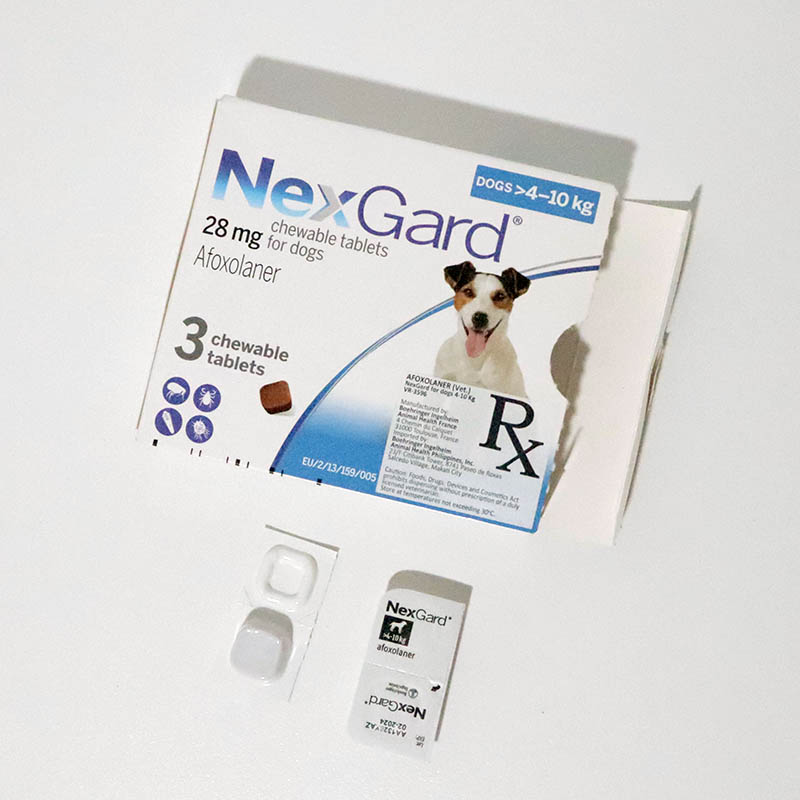Simparica Trio Neurological Side Effects
Discovering the efficacy of Simparica Trio for treating parasites like fleas, ticks, and worms in dogs has been a significant advancement in veterinary medicine. However, alongside its benefits, concerns have emerged regarding potential neurological side effects. Understanding these effects, their frequency, and their severity is crucial for pet owners and veterinarians alike. In this article, we check into the research and real-world experiences to provide a comprehensive overview of Simparica Trio neurological side effects, helping you make informed decisions about your pet’s health and treatment.
Key Takeaways
- Watch for tremors, seizures, and ataxia in pets after administering Simparica Trio.
- Immediate veterinary attention is crucial for any observed neurological symptoms.
- Discuss the pet’s medical history with a vet to assess potential risks.
- Monitor behavior for gait changes, coordination issues, and sensory abnormalities.
- Adjust medication or dosage under veterinary guidance to manage side effects effectively.
Understanding Simparica Trios Neurological Risks
If you’re considering using Simparica Trio, it’s crucial to understand the neurological risks associated with the medication. While Simparica Trio is effective in protecting your furry friend against fleas, ticks, and other parasites, like any medication, it comes with potential risks. One significant risk to be aware of is the possibility of neurological side effects.
Neurological side effects linked to Simparica Trio can include symptoms such as tremors, seizures, and ataxia. These effects are rare but can occur, especially in dogs with a history of neurological issues. It’s essential to monitor your pet closely after administering the medication and seek immediate veterinary care if you notice any concerning signs.
Before starting your pet on Simparica Trio, discuss their medical history with your veterinarian. They can help assess whether the benefits of the medication outweigh the potential risks. By staying informed and vigilant, you can help ensure your pet’s safety while effectively protecting them from harmful parasites.
Common Neurological Side Effects to Watch For
When monitoring your pet for potential neurological side effects linked to Simparica Trio, be alert for symptoms such as tremors, seizures, and ataxia. These common neurological side effects can indicate a serious issue that requires immediate veterinary attention.
Tremors, characterized by involuntary shaking or trembling, may occur in your pet’s muscles and could be a sign of neurological distress. Seizures, which involve uncontrolled electrical activity in the brain, can manifest as convulsions, loss of consciousness, or abnormal behavior. Ataxia, the loss of coordination and control over bodily movements, might make your pet appear unsteady on its feet or have difficulty walking.
If you observe any of these symptoms in your pet after administering Simparica Trio, contact your veterinarian promptly. Monitoring your pet closely for these common neurological side effects is crucial for ensuring their well-being and addressing any potential concerns promptly.
How to Recognize Neurological Symptoms in Pets
To identify neurological symptoms in your pet, observe for any unusual behaviors or movements that may indicate a potential issue. Look out for signs such as sudden changes in gait, coordination difficulties, tremors, seizures, head tilting, circling, or unresponsiveness. Keep an eye on your pet’s overall demeanor; if they seem disoriented, excessively lethargic, or overly agitated, it could be a cause for concern.
Changes in your pet’s sensory abilities are also key indicators of neurological problems. Watch for alterations in their vision, hearing, or sense of touch. If your pet starts bumping into objects, not reacting to sounds, or showing heightened sensitivity to touch, it might be linked to a neurological issue.
Additionally, monitor your pet’s behavior closely. Any unexplained aggression, excessive vocalization, or compulsive actions could signal a neurological problem. If you notice any of these symptoms, it’s crucial to seek veterinary attention promptly to properly diagnose and address the issue.
Managing Neurological Side Effects Safely
Consider carefully monitoring your pet’s behavior and consulting with a veterinarian to safely manage any neurological side effects they may experience. If you notice any unusual symptoms such as tremors, seizures, or disorientation after administering Simparica Trio, it’s crucial to seek professional guidance promptly. Your veterinarian can provide tailored recommendations based on your pet’s specific condition and medical history.
In some cases, your vet may suggest adjusting the dosage or switching to a different medication to alleviate the neurological side effects. It’s essential to follow their instructions diligently and not modify the treatment plan without consulting them first. Additionally, they may recommend supportive care measures to help your pet recover more comfortably.
Keep a detailed record of any observed symptoms, their frequency, and severity to provide accurate information to your veterinarian. Open communication and collaboration with your vet are key to ensuring the safety and well-being of your furry companion when managing neurological side effects from Simparica Trio.
Monitoring Your Pets Neurological Health
Ensure regular observation of your pet’s neurological health to detect any changes promptly. Monitoring your pet’s neurological health involves being attentive to any unusual behaviors or symptoms that may indicate a problem. Keep an eye out for signs such as tremors, seizures, weakness, disorientation, or changes in coordination. If you notice any of these symptoms, consult your veterinarian immediately for further evaluation.
Regularly interact with your pet to gauge their responsiveness, alertness, and overall demeanor. Changes in behavior, such as increased aggression, confusion, or lethargy, can also be indicative of neurological issues. Additionally, observe your pet’s gait and balance during walks or playtime to ensure they’re moving normally and without any difficulties.
Document any observations or concerns you have regarding your pet’s neurological health and share them with your veterinarian during routine check-ups. Early detection of neurological changes can lead to timely intervention and better outcomes for your pet’s health and well-being. By staying vigilant and proactive in monitoring your pet’s neurological health, you can help ensure they receive prompt care if any issues arise.
Frequently Asked Questions
Can Simparica Trio Cause Long-Term Neurological Damage in Pets?
Yes, Simparica Trio can cause long-term neurological damage in pets. It’s essential to monitor your furry friend for any unusual symptoms and consult your vet if you notice any concerning changes in behavior or health.
Are There Any Breed-Specific Risks for Neurological Side Effects With Simparica Trio?
Certain dog breeds may have specific risks associated with neurological side effects when using Simparica Trio. Monitor your pet closely for any unusual symptoms and consult your veterinarian if you have concerns.
Can Neurological Side Effects From Simparica Trio Manifest Suddenly or Gradually in Pets?
Neurological side effects from Simparica Trio can manifest suddenly or gradually in pets. It’s essential to monitor your furry friend for any changes in behavior or symptoms and seek veterinary advice promptly for any concerns.
Are There Any Known Interactions Between Simparica Trio and Other Medications That Could Increase the Risk of Neurological Side Effects?
When considering interactions with other medications, it’s crucial to consult your vet. They can advise on potential risks of combining Simparica Trio with other drugs that might heighten the chances of neurological side effects.
How Can Pet Owners Differentiate Between Normal Side Effects of Simparica Trio and Potential Neurological Symptoms?
To differentiate between normal side effects of medication and potential neurological symptoms, monitor your pet closely for any unusual behavior. If you notice anything concerning, contact your veterinarian immediately for guidance and evaluation.
Conclusion
Make sure to keep a close eye on your pet for any potential neurological side effects while using Simparica Trio. Look out for common symptoms like tremors, seizures, or changes in behavior.
If you notice any concerning signs, consult your veterinarian immediately. By staying vigilant and proactive, you can help ensure your pet’s health and well-being while using this medication.








